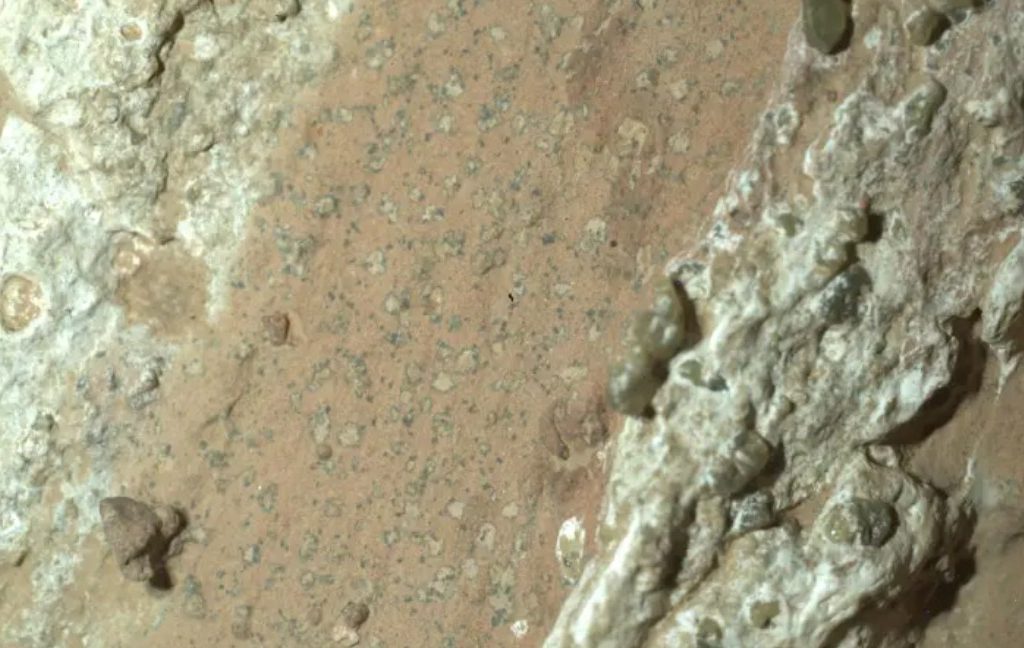NASA scientists say a rock sample collected by the Perseverance rover in Mars’ Jezero crater could offer potential evidence of past microbial life, though further analysis is needed to confirm the findings.
In July 2024, Perseverance drilled into a rock formation called “Bright Angel,” along the edge of an ancient river valley known as Neretva Vallis. The team nicknamed the sample “Sapphire Canyon” and the host rock “Cheyava Falls.” Within the rock, researchers identified unusual dark markings they called “leopard spots.”
“In these spots, they detected two iron-rich minerals: vivianite and greigite,” the study noted. “The presence of these spots and their composition indicates chemical reactions that possibly came from microbial activities in the past.”
The Bright Angel rocks were also found to contain organic carbon, sulfur, oxidized iron and phosphorus — elements that can provide energy for microbes. On Earth, such conditions often preserve biological signatures. While the spots could have formed through inorganic processes, researchers said the rocks showed no signs of the high heat and acidity typically required for that to occur.
The team emphasized that the results remain inconclusive. More detailed analysis will be conducted on Earth if the samples are returned by a future mission. Still, the discovery adds weight to the broader question driving Mars exploration: whether the planet once supported life.
Source: NASA
